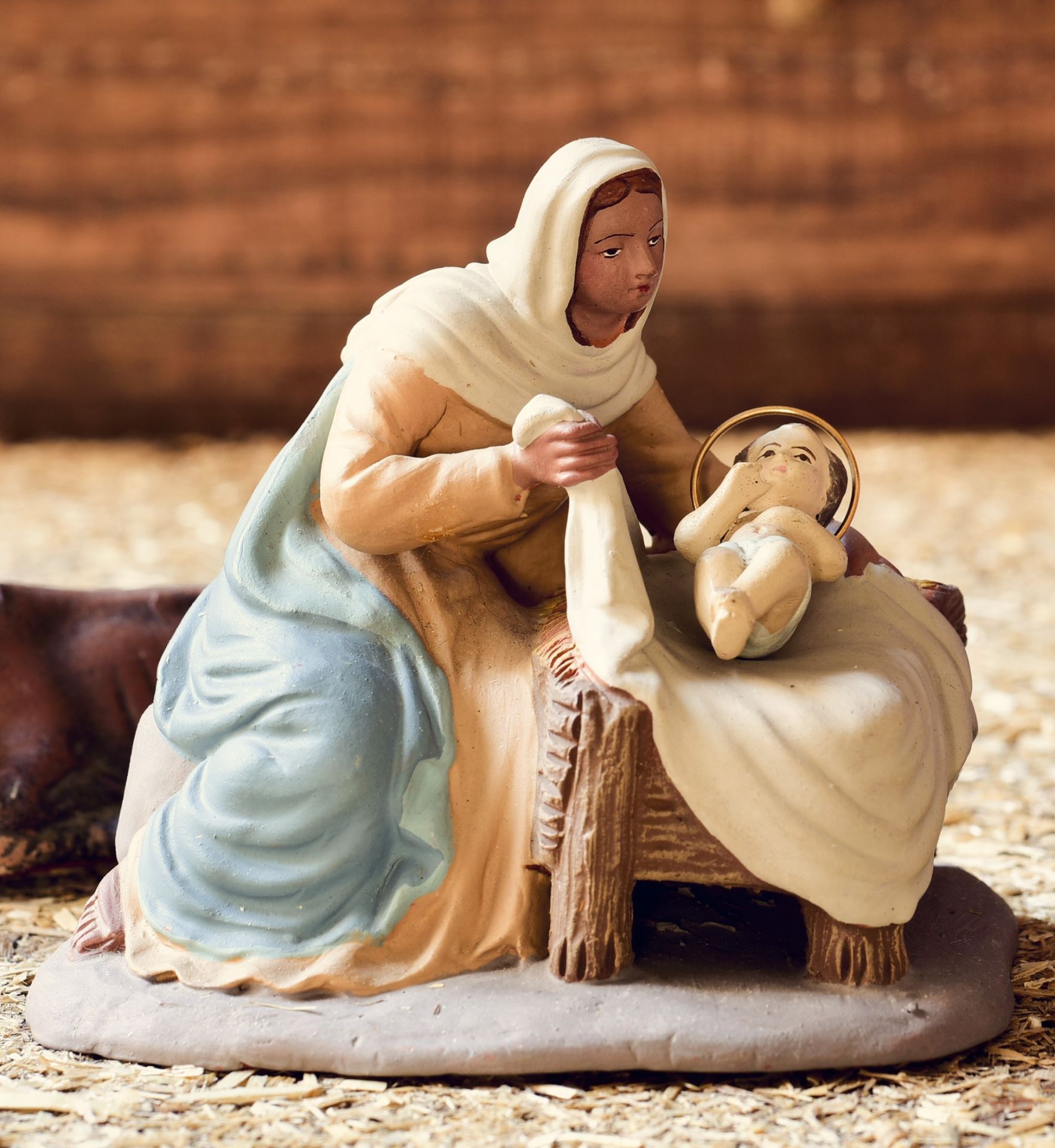
by Amy Frazier | Dec 13, 2018
Psalm 119:15 (ESV) “I will meditate on Your precepts and fix my eyes on Your ways.”
I had a prompting to spend some alone time with God. I remember telling my husband the night before that I was driving somewhere to be alone with God. I didn’t know where, but if kidnapped, I’ll have my “Find Friends” app on.
It was a Saturday morning, and I normally go for a run or to the gym, but this day, I took my guitar, notebook, Bible and pen, and left for the unknown. I remember driving toward Newcastle and then drifting on a turnpike, which made me panic wondering if our turnpike pass was current, so I had to call Jared at that point. Thank goodness it was, so I kept driving until I felt the Lord leading me to exit.
I somehow arrived in Lawton, by Meers, where I eventually parked in a rest area on “Lake Lawtonka.” This lake was beautiful because it was right around the Mount Scott area. In Oklahoma, Mount Scott is as mountainous as it gets for our part of the country.
As I was parking at the rest area by the lake, I noticed seven different picnic tables outlining the shore. I remember asking God for direction on where to pull over. He guided me to the highest point of the lake with an amazing view. I pulled in by the picnic table and started to unload my things. There wasn’t a soul in site for miles. It was fantastic, and I truly felt like I was alone with God.
After 30 minutes of pure bliss, I heard a car engine pulling toward my area. A man in a van rolled down his window and asked if he could fish right where I was. Before answering, I looked around at all the other picnic spots, making it completely obvious there were other spots available – seven, if I didn’t mention that before – and then said, “Well I guess you can…” I know my face at that point was in utter disgust. He delightfully smiled and started to unload his fishing equipment.
Now when I say, “fishing equipment” I mean he took out eight five-gallon buckets full of who-knows-what, with eight fishing poles and bait. This guy was serious! As I was watching him unload, I was amazed at how much he had.
He kept getting more and more supplies out of the van. A few minutes later, he was still unloading, and I am getting hotter by the minute! As he went back and forth, he was also whistling and having the time of his life, which made this worse. I finally had enough and walked off. I remember him saying, “I hope I’m not running you off….” All I could muster to say back was, “umm huh thanks…”
As I walked to my car, I was left feeling really upset. I eventually pulled in to another picnic spot, trying to get as far away from this guy as possible. When I unloaded my stuff the second time, I remember asking the Lord why this happened, especially when there were so many other spots this guy could have used.
Here is what God revealed to me. In a believer’s life we will be called to participate in what God is prompting us to do as His children. We have a choice. Are we going to follow Him? If so, we must have single vision. Distractions will happen to us and will try and keep us from pursuing what we have been called to do. If we don’t take heed to the lessons, we will fall, guaranteed.
Sometimes the only way to get rid of a distraction is to walk away from it. If we don’t walk away, we may miss what God wants us to see and hear. By staying close to the distraction, our eyes slip, and we focus on other things with no heavenly gain. Sometimes, when dealing with our distractions, just ignoring it won’t work, especially when the distraction is so strong for us. Physically leaving is sometimes the only answer.
Wow, that was so eye-opening to me. How I never want to miss or put my mind on other things besides what the Lord is doing in and around me. I don’t want to miss out on His blessings, do you?
In Gal. 5:16-17 (ESV), it says, “But I say, walk by the Spirit, and you will not gratify the desires of the flesh. For the desires of the flesh are against the Spirit, and the desires of the Spirit are against the flesh, for these are opposed to each other, to keep you from doing the things you want to do.” As I am typing this, I am thinking just how true this passage is. We are prone to our fleshly thinking, (“Prone to wonder, Lord I feel it. Prone to leave the God I love”) which always leads us in the OPPOSITE direction of where God wants to take us.
If I am not focused and growing in Christ, it delays my journey to the place God wants to take me. A classic example are the Israelites and their journey to the Promised Land. Time and time again, they walked with their fleshly desires at the forefront, while forgetting what God took them through, which caused many to never experience what God had planned for them. Their gaze was not on God but on themselves.
1 Peter 5:8 tells us that our enemy prowls around like a roaring lion and is ready to devour, so we need to be of sober-mind and watchful, as not to be entrapped by his schemes. Being alert is crucial to our success. Webster tells us that being “alert” is being quick to notice something that is “potentially” dangerous or “could be” difficult for us. If we take notice before it becomes a distraction, we can decide right then what to do about it, before it ensnares our life. In all my years of knowing God, He has warned me of many pitfalls, and prepared my heart to listen and heed His warning.
May we never take our gaze off the Lord and may He continually be our heart’s cry till He calls us home!
As always, I’m learning right there with ya!

by Brian Hobbs | Dec 6, 2018
Glasses versus contacts. The Sooners or the Cowboys. Coke versus Pepsi. Some debates bring out stronger feelings than you might think.
I was reminded of one of those ongoing debates recently. Which is better? Real Christmas trees or artificial ones?
Growing up, our family had artificial trees. They are overall more inexpensive (especially when the cost is divided over several years). They are less mess, and in today’s market, you can get almost any style you want, lights and all.
These days, my family uses real Christmas trees. They look and smell great and are the real deal. You even get to experience of the thrill (but also the cost) of tree shopping each year. Some people I know even cut their own tree down.
Whether you prefer real or artificial trees, there is one thing that we all need to remember that is definitely real at Christmas. It’s the Christmas story itself, as told in the Gospels of Matthew and Luke.
I recently heard a preacher point out that the biblical narratives don’t begin with “Once upon a time…”
Instead, it begins with “In the time of Herod king of Judea there was…” (Luke 1:5), which proves the writer is rooting the narrative in history. In Christmas, as with all of Christianity, we have a faith that’s rooted in history and grounded in reality.
And that kind of authentic quality is the best of both worlds and the best kind of gift to remember at Christmas.

by Ryan Smith | Dec 5, 2018
The majestic words of Psalm 98:4-9 ring with exulting joy:
“Make a joyful noise to the Lord, all the earth; break forth into joyous song and sing praises!
Sing praises to the LORD with the lyre, with the lyre and the sound of melody!
With trumpets and the sound of the horn make a joyful noise before the King, the LORD!
Let the sea roar, and all that fills it; the world and those who dwell in it!
Let the rivers clap their hands; let the hills sing for joy together before the LORD,
for he comes to judge the earth.
He will judge the world with righteousness, and the peoples with equity.”
While we may have read these verses before, few would identify them as the source of one of the Christmas season’s most recognizable hymns. After all, where is the stable? Where is the star? Where are the angels and the sleigh bells jing-jing-jingling all the way?
Interestingly, one of the church’s most prominent Yuletide tunes is not even a song about Christmas.
In 1719, Isaac Watts sat down to pen a poetic paraphrase of one of his favorite psalms, Psalm 98. He broke the psalm into two parts and summarized verses 4-9 under the name, “The Messiah’s Coming and Kingdom.”
For Watts, the psalms were a direct link to the New Testament. Reading the words of liberation, musical instrumentation and nature’s vibrant exaltation of its Maker brought to mind the ideas expressed in verses like Romans 8:19-21, “For the creation waits with eager longing for the revealing of the sons of God. For the creation was subjected to futility, not willingly, but because of him who subjected it, in hope that the creation itself will be set free from its bondage to corruption and obtain the freedom of the glory of the children of God.”
This liberation of all creation at the arrival of the conquering King led Watts to the closing chapters of Revelation. Revelation 21 celebrates Jesus’ triumphant return as a new heaven and earth replace our decaying cosmos of sin, and the One who has come to judge the earth with righteousness proclaims, “Behold, I am making all things new” (Rev. 21:5).
The Christmas song known today as, “Joy to the World,” was originally an apocalyptic paraphrase of Psalm 98.
Joined by Lowell Mason in 1836 to a melodic portion of Handel’s Messiah, the poem came to be known in its present form as a joyful song of the King’s arrival. Since we commemorate the breaking through of the Light into the darkness at Christmas with Jesus’ first coming, the church has celebrated these two arrivals almost synonymously through the song for centuries.
At Advent, we anticipate the final arrival of Christ the King as the early Jews awaited the first arrival of the Messiah. We long with the thrill of hope for the weary world to rejoice at the revelation of its Savior.
“Joy to the World” is a particularly appropriate song during the season of Advent. We celebrate the coming of the King in the manger; yet we anticipate the arrival of the King on the clouds.
Joy to the World; the Lord is come;
Let earth receive her King:
let every heart prepare him room,
and heaven and nature sing.
Joy to the earth, the Savior reigns;
let men their songs employ;
while fields & floods, rocks, hills & plains
repeat the sounding joy.
No more let sins and sorrows grow,
nor thorns infest the ground:
He comes to make his blessings flow
far as the curse is found.
He rules the world with truth and grace,
and makes the nations prove
the glories of his righteousness,
and wonders of his love.

by Caleb Moore | Nov 28, 2018
At Christmas time, we always give attention to Christ being born. But what I always like to think about is that moment just before Mary became pregnant. Where was Jesus right before he entered into his mother’s womb?
We know that Jesus prior to coming to earth was fully God, sitting at a position of authority along with God the Father. Jesus was ruling and reigning as God, and then suddenly, He is transformed and implanted into Mary’s womb.
The amount of humility Jesus showed in this act is impossible for us to comprehend. Before coming to earth He is fully understood by all the angels. He is worshiped for who He truly is, and His every command is obeyed without hesitation.
When that planned hour finally arrived, Jesus does something totally unimaginable. He steps away from His throne. There is no vocabulary to describe what the trip from His throne into the womb would look like. It likely happened in the blink of an eye, but it is still the farthest journey imaginable.
Jesus leaves behind a realm where He was totally understood and totally obeyed to a place in space and time where He became totally dependent on His family to provide for Him. Nine months later, God in the flesh would need to cry when He was hungry. God himself would need to be changed and held.
As He grew, He would be misunderstood, betrayed, mocked and eventually killed. Jesus entered our world amongst the blood and pain of childbirth, and He left among the blood and pain of crucifixion. That is the way we treated the King of Kings. But the pain of death was not the final bookend to His earthly life. He would be raised again in victory.
The question I always ask myself is why did Jesus have to come so far? Why did he have to traverse such a great distance?
The truth is because that is how far away from God I was. It’s good to recognize and celebrate the birth of Jesus, but let us not forget the tragedy that caused Him to come to save His creation. I pray you are humbled as I am, whenever I think about that moment right before Mary became a mother.

by Ryan Smith | Nov 27, 2018
The Christmas season, for many, is a season of hope. We hope for that special present. We hope for snow (or no snow…Scrooges). Our Christmas songs are tinseled with words of hope for peace, joy and love.
For many of our churches, the Christmas season has become synonymous with Advent. Advent is the time we light sequential candles in church and watch the flames dance as we sing the familiar songs of the season.
As a child, I was always dazzled by those flames. However, I didn’t truly understand what they meant.
Historically for the church, Advent and Christmas have been two separate seasons. Christmas is a celebration of the Son of God’s arrival as a baby in Bethlehem. At Christmas, we celebrate the fulfillment of God’s promises, salvation through the Messiah and the Light of the world who penetrated the darkness.
It is because of Christmas we celebrate the fulfillment of hope, joy, love and peace.
Yet there is no celebration of hope without a season of unfulfilled longing;
no joy without a season of sadness;
no love without a season of isolation;
no peace without a season of war.
Advent is that season.
For centuries, the people of God anticipated the arrival of the Messiah – the Savior who would restore all things and redeem His people. Every page of the Old Testament pulses with the heartbeat of a broken, sinful world and the promised Christ of restoration.
Their faith, like a candle, illuminated the darkness around them in anticipation of this Savior. They longed with great hope, and this hope was their faith.
The arrival of Jesus, the Messiah, is the fulfillment of that hope.
Today, in Christ, we have joy; we celebrate His love; we rest in His peace.
Yet we too long for a day when all things will be made new.
Like Abraham looking to the stars, we know we are people set apart by a God who keeps His promises. Jesus’s words in the closing verses of Revelation linger with every sunrise, “Surely I am coming soon” (Rev. 22:20).
Yet like John, our response echoes with every sunset, “Amen. Come, Lord Jesus!”
During the Advent season, as we light candles, read from the Scriptures and sing songs of Christ’s arrival, let us do so at the highest level of bittersweet.
Our song is sweet because Jesus has come! The gospel is true, and God is faithful!
Our song is bitter because we still walk the fallen path of sin and rebellion and anticipate the glorious Kingdom to come when Christ returns.
Hope. Love. Joy. Peace. Christ. This is the season of Advent.
Amen. Come, Lord Jesus.

by Karen Kinnaird | Oct 31, 2018
“Teach what is good…” (Titus 2:3)
Oklahoma native Kelly D. King has new book, Ministry to Women – The Essential Guide for Leading Women in the Local Church, hot off the press. Published by LifeWay, this book is full of essentials – practical helps and creative solutions for intentional ministry to women. The nine-chapter resource should be a part of every women’s ministry leader’s library. Packed with valuable information, it’s written in a condensed, easy-to-read format.
Kelly D. King is the women’s ministry specialist for LifeWay Christian Resources where she coordinates training and equipping events for women in leadership. King served 11 years as the women’s missions and ministries specialist for the Baptist General Convention of Oklahoma. Gleaning from years of hands-on experience in the local church and statewide ministry, King writes about the importance of using methods dynamically to reach women based on the ever-changing cultural landscape.
This interactive manual will benefit seasoned leaders, desiring to keep their ministries current and vibrant, as well as aspiring leaders just getting started. King incorporates Scripture throughout the book along with heartfelt personal stories. Each chapter includes challenging application questions and places to take notes.
Addressing issues such as the rise of the millennial generation, changes in communication, ministering in a post-modern culture and the rising interest of women as leaders, she gives sound advice for constantly evolving ministries. Readers are encouraged to customize these practical tools and apply them to the context of their own church.
With a solid theological framework, the book features:
- The why of ministry beginning with prayer
- Building and leading a team
- Discipleship which includes choosing a Bible study and creating a great Bible study atmosphere
- Connecting generations
- Communicating with intentionality and creativity
- Planning purposeful events
- Ministering to women in pain and crisis
- Creating a welcoming atmosphere and seeking evangelistic opportunities
My favorite chapter was “Connecting the Generations,” where King shares personal stories about women who mentored her. Encouraging personal relationships within Biblical community, King writes, “…we’ve forgotten the simplicity of how the local church should be connecting the generations and providing natural mentoring opportunities.” She discourages programing and encourages more intentional, strategic mentoring through existing relationships. This “realistic approach” allows godly women to share their life experiences, along with the Word of God and prayer with younger women.
King also addresses skills that appear to be simple and basic – skills that one would assume people know how to do, but in reality may not have been taught, such as:
- How to lead an effective team meeting and make an agenda
- Proper use of social media in a ministry context
- Tips on visiting someone in the hospital
- Steps for planning an international mission trip
- Tips for including ministry wives and working with male staff members
Every women’s ministry leader needs to get a copy of Ministry to Women- The Essential Guide for Leading Women in the Local Church. It’s available in print and e-book at www.lifeway.com. Use it as a handbook and refer to it throughout the year.






